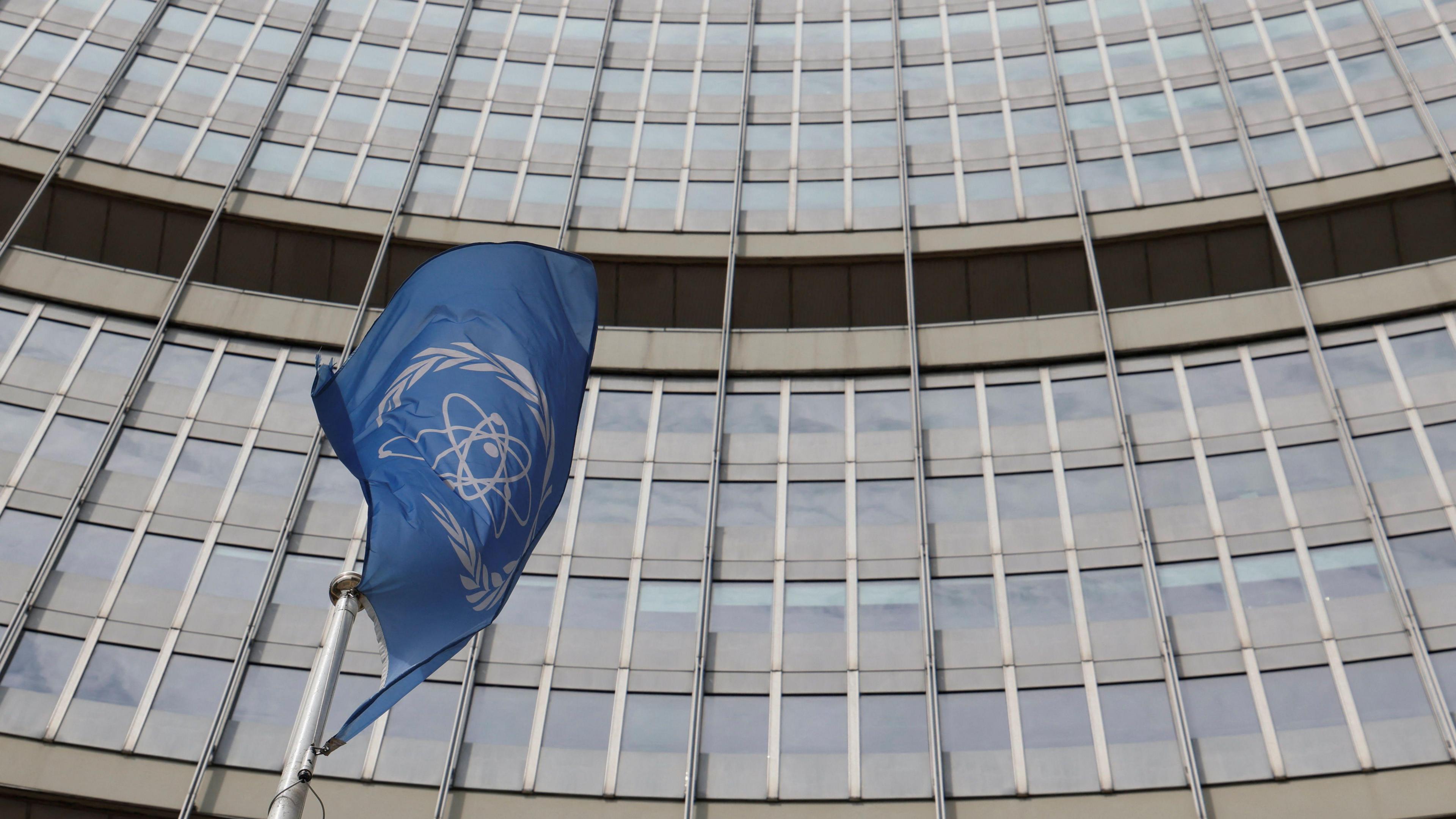UN nuclear watchdog urges Iran to cooperate

The IAEA gathered in Vienna at a quarterly meeting of its 35-nation board of governors
- Published
The UN's nuclear watchdog, the International Atomic Energy Agency (IAEA), has passed a resolution calling on Iran to urgently cooperate and reverse its decision to bar some of its inspectors.
There are concerns Iran is trying to develop a nuclear weapon, an accusation Tehran denies.
The resolution, drafted by Britain, France and Germany, passed by the 35-nation board of governors was voted for by 20 countries, with only China and Russia voting it down. Twelve nations abstained and one country did not take part.
Iran called the decision "hasty and unwise", Iranian state TV reported.
The resolution, passed at a quarterly meeting in Vienna, said Iran must urgently, fully and unambiguously co-operate with the IAEA.
It also said Tehran should answer longstanding questions about uranium traces found at two sites there and allow some of the agency's most experienced enrichment inspectors back in to the country.
Iran is now enriching uranium up to 60% purity - close to the 90% needed for weapons grade - while it keeps accumulating large uranium stockpiles, according to the IAEA.
The motion aims to raise diplomatic pressure on Iran.
In a separate joint statement, France, Germany and the UK urged Iran to "halt its nuclear escalation" and refrain from making threats to produce nuclear weapons.
"Much of Iran's nuclear programme is unprecedented for a state without a nuclear weapons programme," it said.
"The production of uranium metal is a key step for the development of a nuclear weapon. We urge Iran not to undertake this work again."
The United States, which backed the resolution, expressed concerns that Iran might respond with nuclear escalation.
In the past, similar resolutions and sanctions have prompted Tehran to retaliate by removing surveillance cameras and increasing its uranium enrichment.
Iran's state TV reported on Wednesday their nation's mission to the UN said: "The decision of the Western countries was hasty and unwise, and it will undoubtedly have a detrimental impact on the process of diplomatic engagement and constructive cooperation (between Iran and the opposing parties)."
Related topics
- Published1 March 2023
- Published9 June 2022